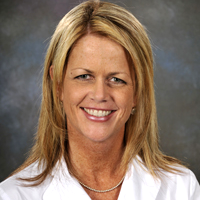Accreditation and Accountability for Education Programs: Selecting and Using the Most Compelling Evidence
 Presenter:
Presenter:
Brigitte Valesey, Ph.D.: Director of Assessment and Accreditation-School of Education, Drexel University
Brigitte Valesey’s experience in K-12 and higher education spans teaching; developing and evaluating innovative programs to support teaching and learning; designing and implementing student learning assessment; and conducting peer evaluations related to accreditation. Brigitte spent 12 years teaching at the middle and high schools levels in Montgomery County, Maryland and Norfolk, Virginia. Her K-12 education association experience involved creating a national teaching and learning center and multi-state consortium for implementing K-12 technological literacy standards. At another university, she established an office for student learning assessment where she developed program assessment processes; provided consultative services for academic programs and professional accreditation efforts; conducted customized assessment training; and designed assessment surveys, rubrics, and other resources.
 Presenter:
Presenter:
Sarah Ulrich, Ed.D.: Associate Dean for Teacher Education and Undergraduate Affairs, and Clinical Professor of Teacher Education, Drexel University
Sarah Ulrich has been working in teacher preparation for over fifteen years. Before, transitioning to higher education, Sarah spent 10 years teaching in both elementary and middle schools in the Archdiocese of Los Angeles and the Los Angeles Unified School District. She holds a B.A. in Journalism, an M.A. in Elementary Education with an emphasis in Cross Cultural, Language and Academic Development and a doctorate in Educational Leadership from Saint Joseph’s University. Her dissertation, The Role of “Racialized Consciousness” for White, Female, Middle Class Teachers in Urban Settings, examined the lack of cultural synchronization between the U.S. Teaching population and diverse learners in urban schools. She is the co-Chair for the Education initiatives for the US Department of Education’s $30M, multi-year Promise Neighborhood grant for West Philadelphia Promise Zone. She recently served as the co-Principal Investigator on a $1.8M PDE Eligible Partnership Grant for building community partnerships with Philadelphia schools and developing Drexel's Teacher Residency initiative. She has also previously served as the Director of Student Teaching for Saint Joseph’s University.
Description:
This pre-conference workshop is intended for educator preparation leaders, the recruitment and preparation of high quality PK-12 teachers, specialists, and administrators is an imperative. While each educator preparation program provider (EPP) prepares PK-12 educators according to unique missions and visions, these providers share a commitment to rigorous and impactful educational experiences that produce ground-ready PK-12 teachers and leaders for the diverse communities in our region. This session seeks to bring participants together with education program providers, state department education leaders and members of the CAEP national accreditation organization to discuss and strategize evidence-centric practices and design approaches related to candidate success and continuous program improvement.
State certification requirements, statewide assessments, and professional accreditation standards provide shared expectations for education graduates, programs, and impacts on PK-12 students. Collectively, EPPs continue to respond to rapidly changing political, economic, regulatory, and social environments, and meeting challenges with new opportunities. It is in this broader context that this session seeks to provide the space for EPPs and other related stakeholders to discuss opportunities, address challenges and to learn from one another.
Education programs preparing graduates for PK-12 schools face rigorous expectations for external accountability and compliance, especially at the federal and state levels. Likewise, professional accreditation for EPPs has changed dramatically, in the evolution of education accrediting organizations from the former NCATE and TEAC to the Council for Accreditation of Education Providers (CAEP). PK-12 educators are challenged to address new CAEP standards and are finding that compliance expectations are now highly candidate-centered, evidence-based and focused on continuous improvements. Likewise, PK-12 educators are facing heightened internal accountabilities at their own institutions for enrollments and retention, quality and successful employment of graduates, and stewardship of program resources.
Learning Outcomes:
At the conclusion of this workshop, participants will be able to…
- Apply strategies to identify strong evidence for continuous improvement in education candidate success and program effectiveness.
- Explore ways to leverage learning evidence and program review findings for considering and pursuing accreditation self-study.
- Explore ways to collaborate with state and local LEAs to identify evidence-based strategies to enhance candidate/completer success and program effectiveness